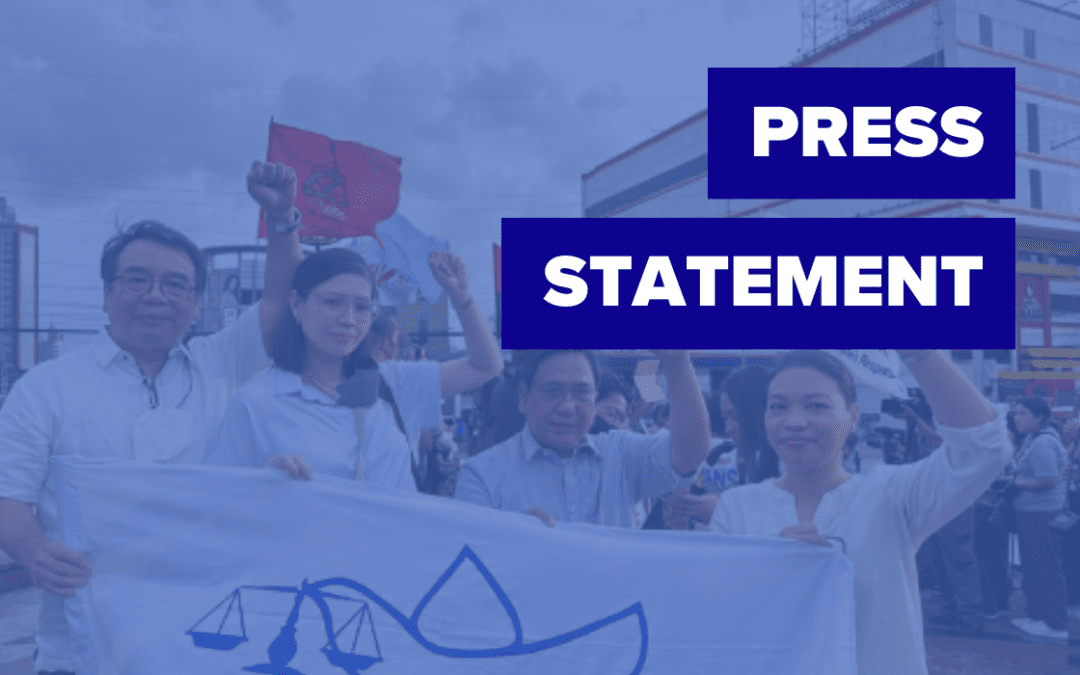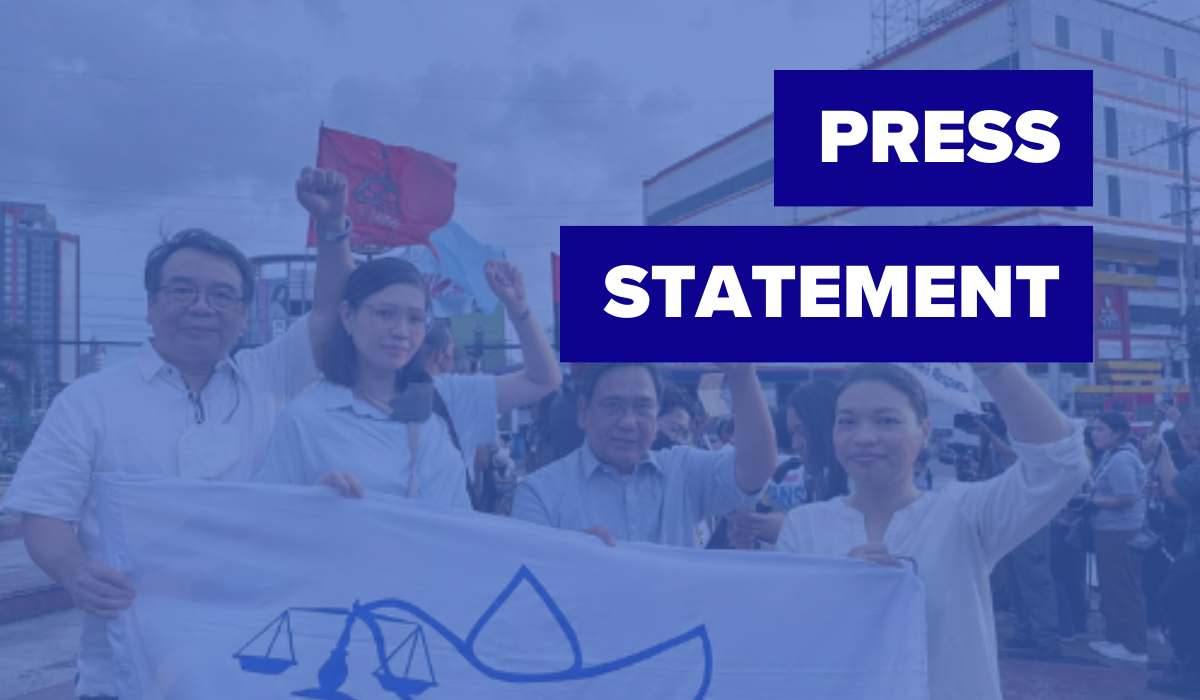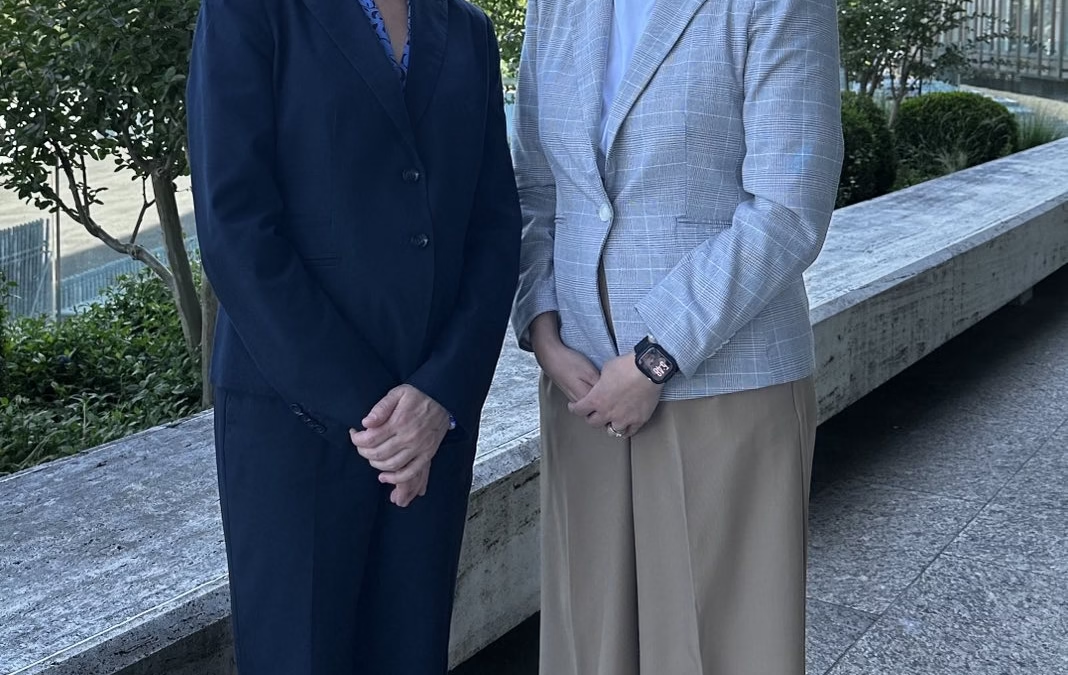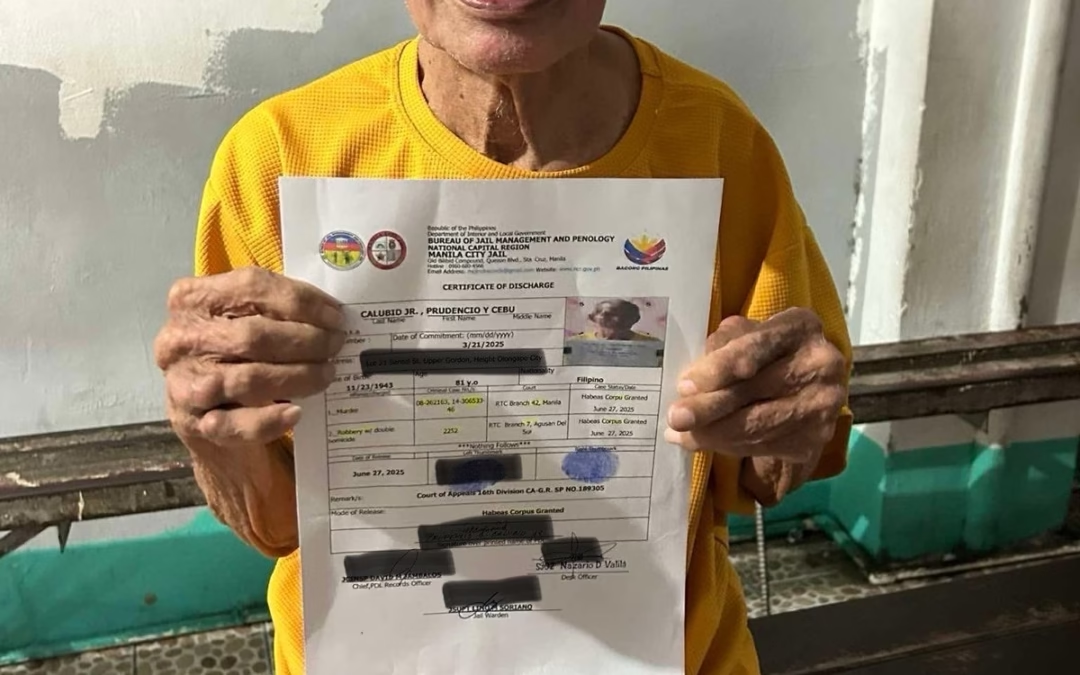The recent series of killings and arbitrary arrests of consultants of the National Democratic Front of the Philippines (NDFP) reveals more than a lack of sincerity by the Philippine government in pursuing peace. It betrays an outright disregard for both human rights and humanitarian law, and a blatant refusal to honor the commitments it has made through formal agreements.
The latest victims, NDFP consultant Wigberto Villarico and his companion Marjorie Lizada, were arrested on October 24, 2024, during a joint operation by the Armed Forces of the Philippines (AFP) and the Philippine National Police (PNP) in Quezon City. Prior to this, Cordillera People’s Democratic Front spokesperson Simeon Naogsan was apprehended in Ilocos Norte on October 21, and NDFP consultant Porferio Tuna in Tagum City on October 2.
Such arrests are a direct violation of the Joint Agreement on Safety and Immunity Guarantees (JASIG), which guarantees the personal security of consultants and members of their staff, including their unhindered passage in all areas of the country, so that they may undertake work in furtherance of the GRP-NDFP peace process. The obligations under JASIG are continuing and cannot be nullified by domestic legal maneuvers.
Even as the administration of President Ferdinand Marcos, Jr. brandished the Joint Statement in Oslo by the GRP and the NDFP in November 2023 as proof of the parties’ earnest efforts to resume the scuttled formal peace negotiations, government forces continue to crack down on individuals – such as NDFP consultants – that play a critical role in ensuring the negotiations’ success.
These actions constitute a severe breach of its commitments under international humanitarian law (IHL) and the principle of pacta sunt servanda—the binding nature of agreements—which is a cornerstone of international law. By violating JASIG and the Comprehensive Agreement on Respect for Human Rights and International Humanitarian Law (CARHRIHL), the government fails to honor agreements entered into voluntarily and through mutual consent, which obligate both parties to uphold standards even amidst conflict. Special agreements like JASIG are essential mechanisms to ensure the humane treatment of individuals during conflict and are not subject to the whims of political convenience.
The abduction, torture, and execution by AFP operatives of Communist Party of the Philippines leaders Benito Tiamzon and Wilma Austria-Tiamzon and their eight companions in Catbalogan, Samar in August 2022 was only one incident in many highlighting the brutality of the GRP’s counterinsurgency campaign. Recent incidents include the killing in August of this year of 74-year-old NDFP consultant Ma. Concepcion “Concha” Araneta, who was already of frail health and visually-impaired, by AFP troops in Calinog, Iloilo.
These heinous acts, perpetrated against individuals hors de combat, constitute violations of IHL under the 1949 Geneva Conventions and their Additional Protocols, to which the Philippine government is a state party. The Geneva Conventions unambiguously prohibit acts of violence, incuding torture, and extrajudicial killings, defining them as war crimes. These crimes trigger the international obligation of states to ensure accountability—an obligation that is transnational in scope and imprescriptible by the passage of time or shifts in political priorities.
Special agreements between conflicting parties to ensure the implementation of IHL are encouraged by the 1949 Geneva Conventions, and by entering into the CARHRIHL and the JASIG, the GRP and the NDFP have undertaken to abide by international human rights and humanitarian principles during the course of the armed conflict. These obligations are borne by both parties despite breakdowns in the peace process as IHL and human rights rules and standards are intended to provide protection to civilians and persons hors de combat even during periods of intense hostility. Moreover, the Philippine government cannot invoke its own domestic laws, including counter-terrorism measures, to evade its human rights and humanitarian obligations under international law.
It is essential to emphasize that the crimes being committed by the AFP, PNP, and the National Task Force to End Local Communist Armed Conflict (NTF-ELCAC) are not only violations of CARHRIHL and JASIG but also war crimes that impose an international legal duty upon the state to investigate, prosecute, and punish the perpetrators. Accountability for such grave breaches of humanitarian law is imperceptible and not bound by jurisdictional borders; hence, the government’s obligation remains active and far-reaching.
If the Marcos administration is serious in its claim of pursuing peace negotiations with the NDFP, it must begin by adhering to international law, the CARHRIHL, the JASIG and other agreements they voluntarily adopted, and that includes the obligation to respect the safety and security of NDFP consultants. The government must accept that fact that nothing less than addressing the root causes of armed conflict will put an end to it.
We therefore call on the Philippine government to abide by the CARHRIHL, the JASIG and other agreements with the NDFP, and, most importantly, to comply with international human rights and humanitarian law. ###

Law as Weapon: Five Years of Repression Under the ATA and TFPSA
The NUPL renews its call for the immediate repeal of these laws. Their continued enforcement safeguards not security, but legitimizes state repression. As long as these laws exist, rights defenders, activists, journalists, and humanitarian workers will remain at risk—not because they have broken the law, but because they challenge the conditions of injustice that the law now seeks to protect.


